Waste Recycling Machines used for each Waste Stream
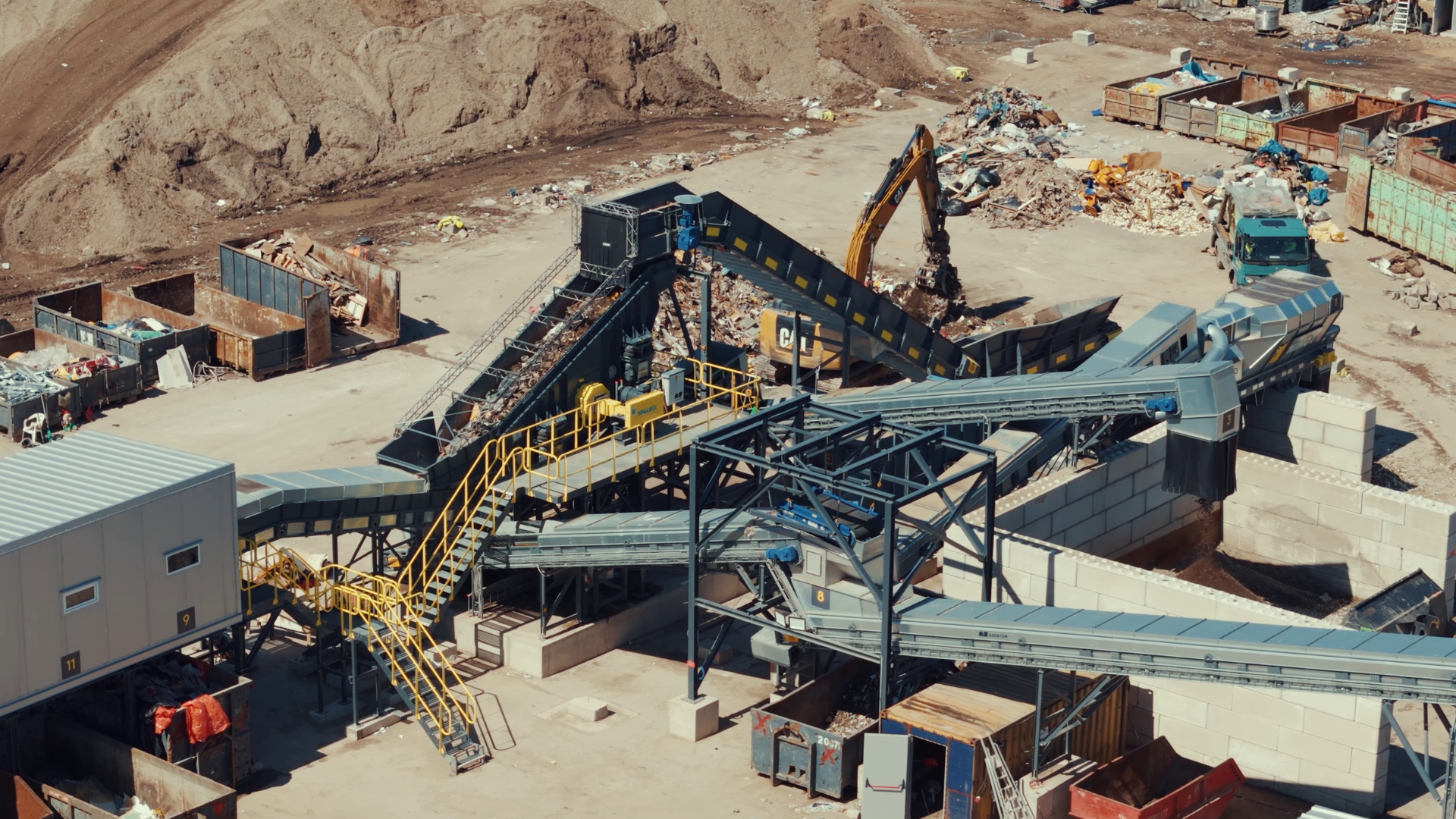
As global sustainability initiatives gain momentum, waste recycling remains at the forefront of environmental conservation.
Advanced recycling machines are crucial for improving waste management processes and ensuring that materials are reused efficiently and effectively.
This guide delves into the distinct types of waste streams and highlights the specialized machinery designed to handle each category. It is tailored for students and professionals passionate about the field of waste engineering.
1. Household Waste
Household waste consists of a mix of organic waste, plastics, paper, and metals; materials typically discarded by residents. To efficiently manage this diverse waste stream, multi-functional machines are required to sort out each waste type from the stream:
- Trommel Screens: These rotating drums segregate waste by size, which is a critical first step in sorting operations.
- Optical Sorters: Using top-of-the-line sensor technology, these machines identify and separate recyclable materials such as plastics and metals from the incoming waste stream.
- Shredders: Essential for reducing the volume of mixed waste, as they make handling and transport more practical.
- Composting Systems: Specifically designed for organic waste, these systems expedite decomposition and allow for nutrient recovery.
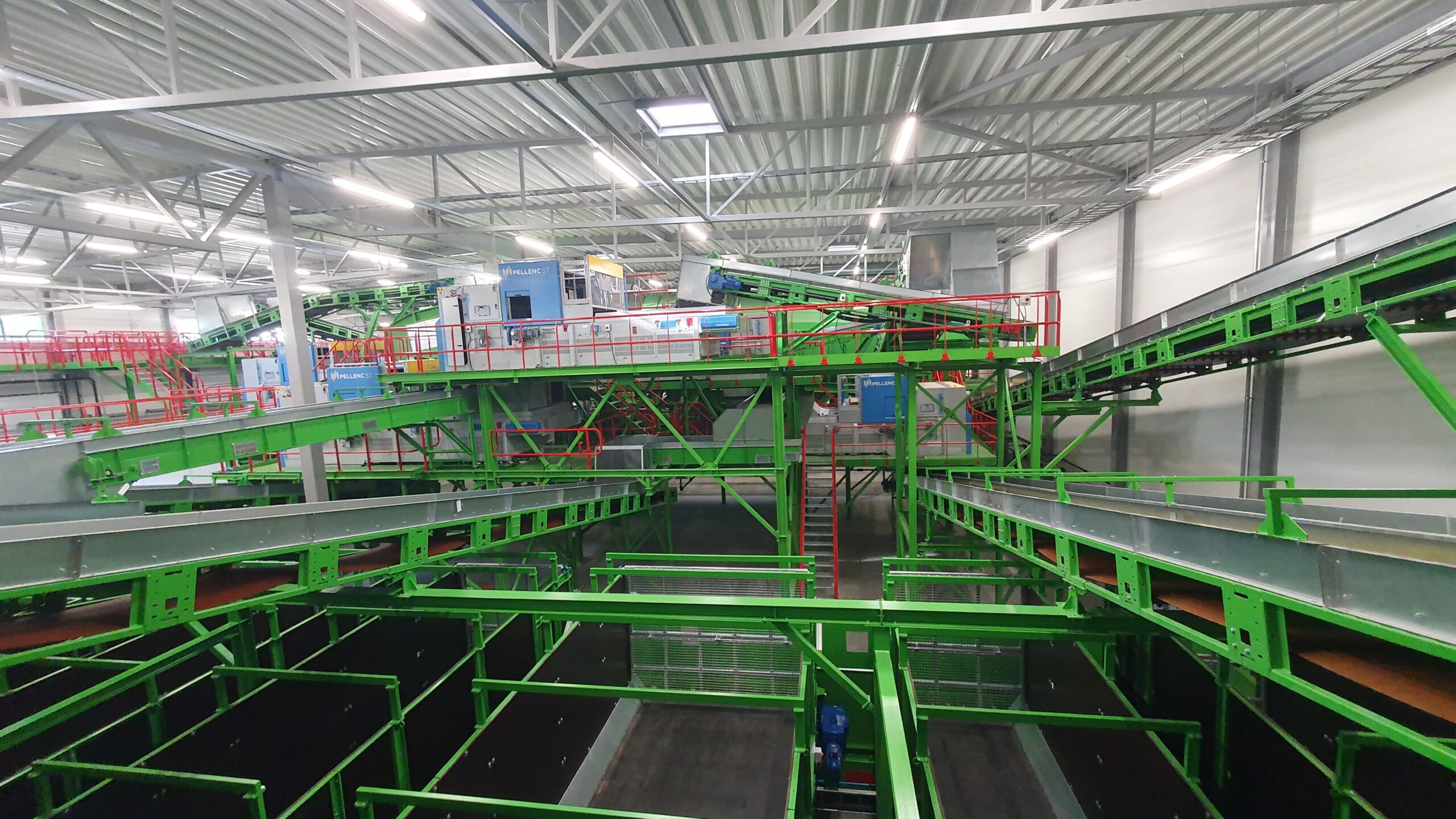
2. Commercial Waste
Commercial waste is waste generated by businesses and institutions. This includes cardboard, plastics, and other packaging materials. To manage this efficiently, these machines are generally used for material recovery:
- Baling Presses: These machines compress cardboard and plastic into compact bales, simplifying storage and transportation.
- Industrial Shredders: Used for breaking down bulky waste items, such as pallets and furniture, into manageable pieces.
- Overhead Magnetic Conveyors: Ideal for extracting metals from the waste stream, improving material recovery rates and reducing the need for manual sorting.
3. Construction and Demolition Waste
The construction industry produces substantial waste, like concrete, wood, and metals. Recycling machinery in this category includes:
- Jaw Crushers: Perfect for crushing concrete and bricks into aggregates, reducing reliance on virgin materials in construction projects.
- Magnetic Separators: Extract ferrous metals from construction debris, which keeps the recycling streams clean.
- Air Classifiers: Used to sort lightweight materials like wood and insulation from heavier debris in the stream.
- Portable Screening Units: Mobile solutions that enable material recovery directly at construction sites.
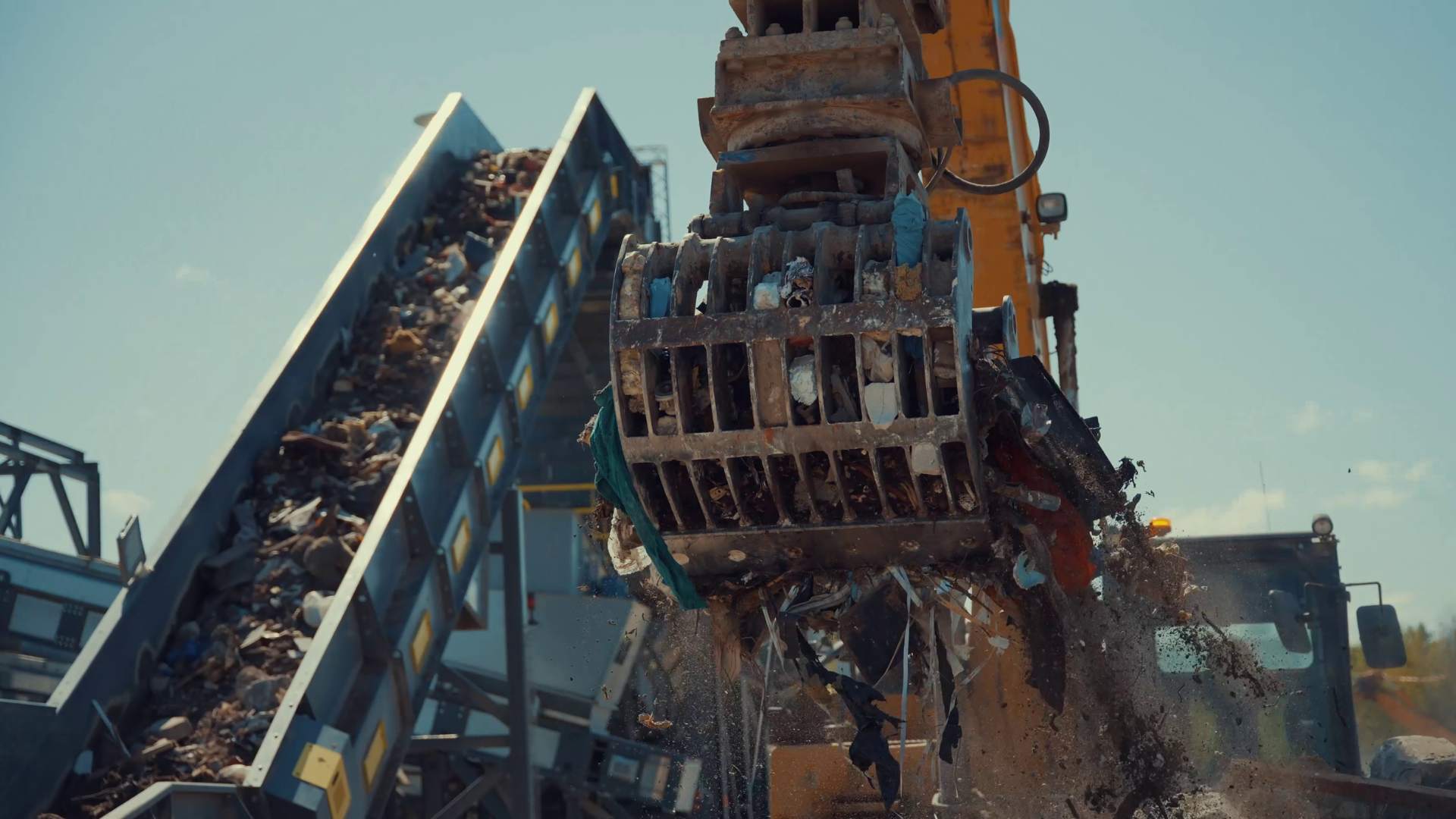
4. Packaging Waste
Packaging waste, comprising of materials such as plastics, paper, and metals, requires specialized equipment:
- Automatic Balers: Compacting machines that transform loose packaging waste into dense, transportable bales.
- Film Grinders: Efficient at processing plastic wraps and films into recyclable fragments.
- Eddy Current Separators: Essential for isolating non-ferrous metals, such as aluminum cans, from mixed waste.
- Label Removers: Advanced devices that remove labels from bottles and containers, further simplifying the recycling process.
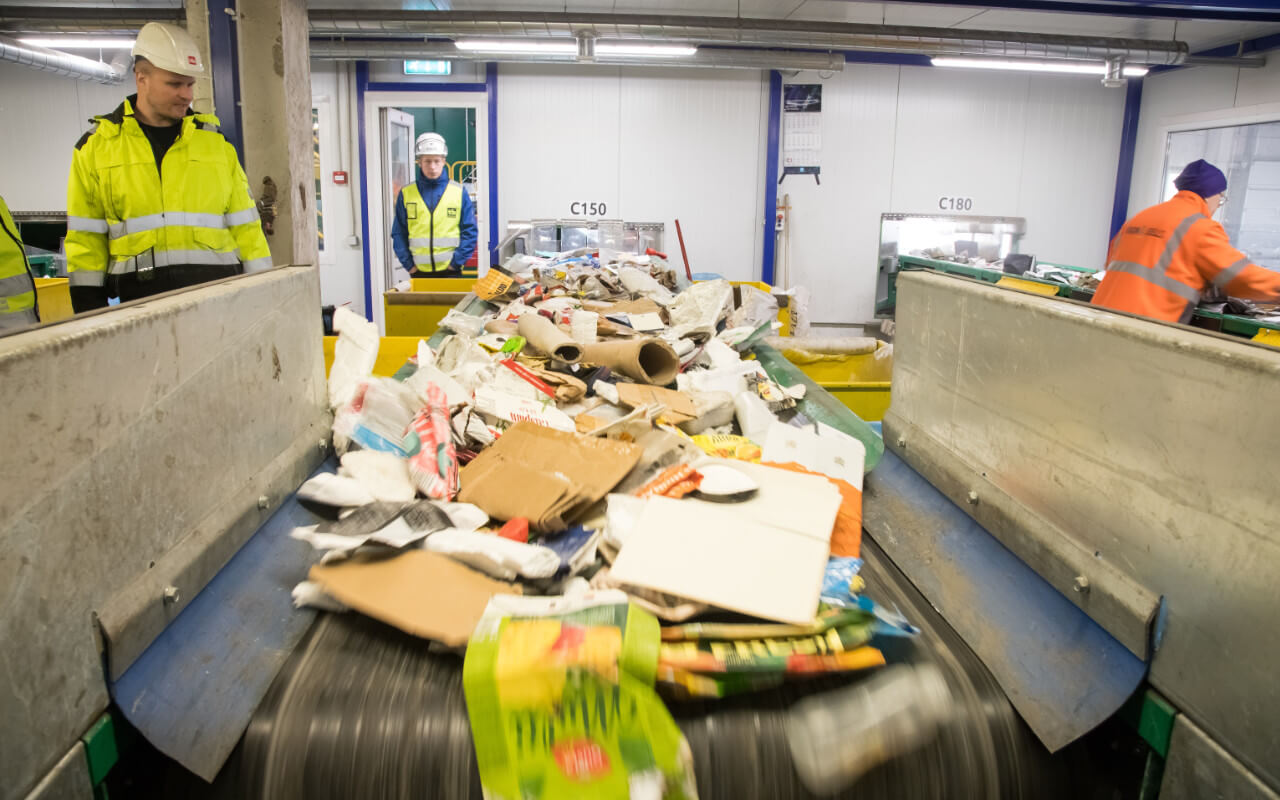
5. Plastic Waste
Given the complexity of plastic waste, machines must address various types and contamination levels:
- Granulators: Break down plastics into uniform granules suitable for remanufacturing.
- Optical Sorters: Use AI-driven sensors to distinguish between different types of plastics, improving material purity.
- Washing Lines: Clean contaminated plastics, preparing them for high-quality recycling.
- Extrusion Machines: Transform granulated plastics into new products, reducing the need for virgin materials.
6. Black Plastics
Recycling black plastics is particularly challenging due to their infrared absorption properties. Advanced equipment includes:
- Infrared Optical Sorters: These machines specialize in detecting black plastics using enhanced sensors.
- Specialized Shredders: Reduce black plastics into uniform pieces, ready for further processing.
- Chemical Recycling Systems: Advanced methods that break down black plastics into raw chemical components, bypassing traditional limitations.
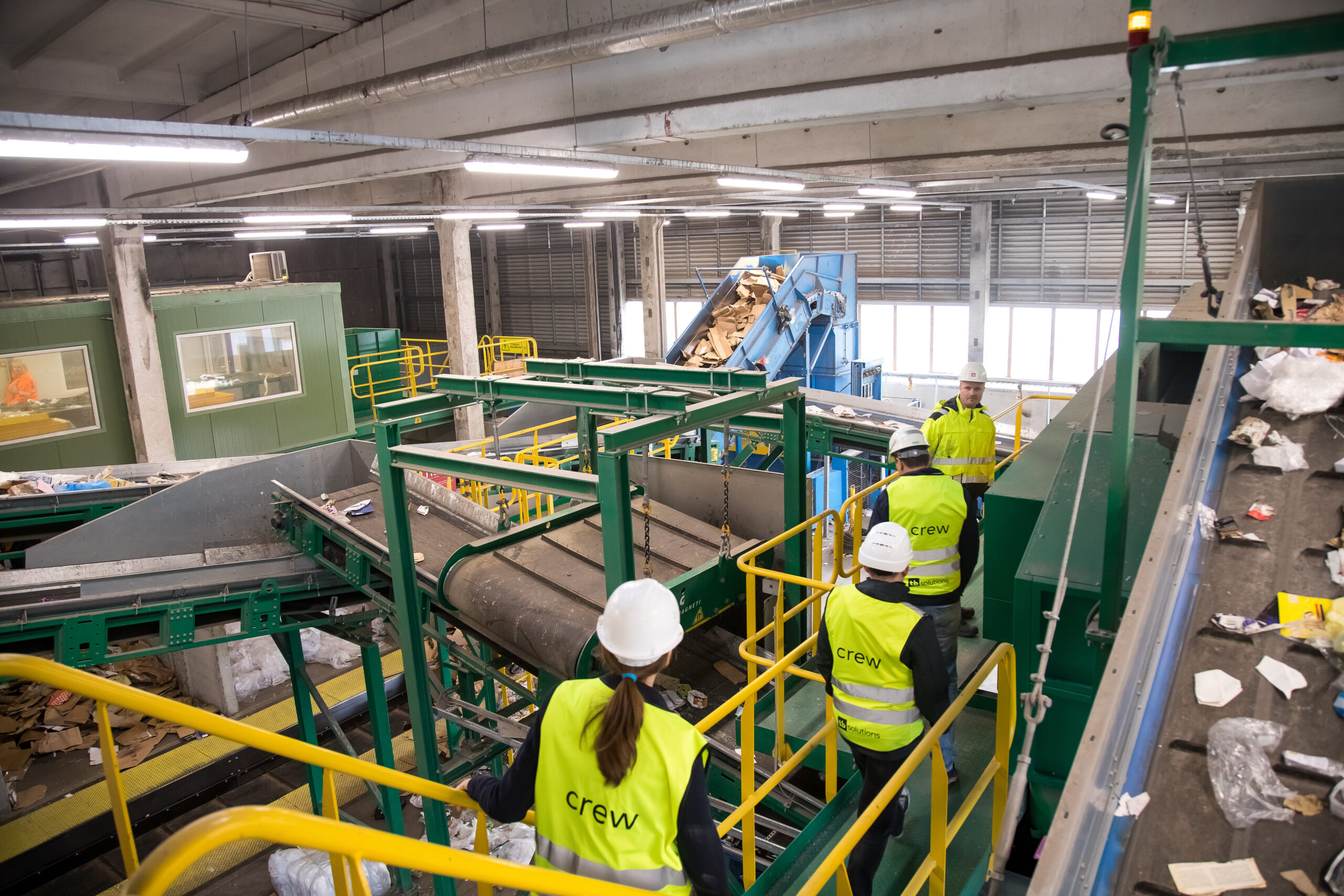
7. Refuse-Derived Fuels (RDF)
RDF converts non-recyclable waste into energy, reducing landfill dependency. Key machines include:
- RDF Shredders: Break down waste into specific sizes for energy recovery processes like incineration or gasification.
- Dryers: Reduce moisture content, enhancing the calorific value of the waste.
- Densifiers: Compact RDF into pellets for easier storage and transport.
- Energy Recovery Units: Systems designed to optimize the energy extracted from RDF materials.
8. Compost
Organic waste can be turned into nutrient-rich compost using specialized machines:
- Composting Turners: Aerate and mix compost piles, ensuring optimal decomposition conditions.
- Screening Machines: Separate mature compost from larger, unfinished organic matter.
- Shredders: Reduce the size of green waste, such as branches and leaves, for faster composting.
- Moisture Control Systems: Maintain optimal moisture levels for microbial activity.
9. Wood Waste
Recycling wood waste into products like mulch and biofuel requires robust equipment:
- Wood Chippers: Process logs and branches into mulch for landscaping or agricultural use.
- Grinders: Convert wood waste into particles for biofuel production or other applications.
- Magnetic Separators: Remove embedded metals, such as nails and screws, ensuring clean wood recycling.
- Pallet Dismantlers: Recover reusable wood components from pallets, reducing waste.
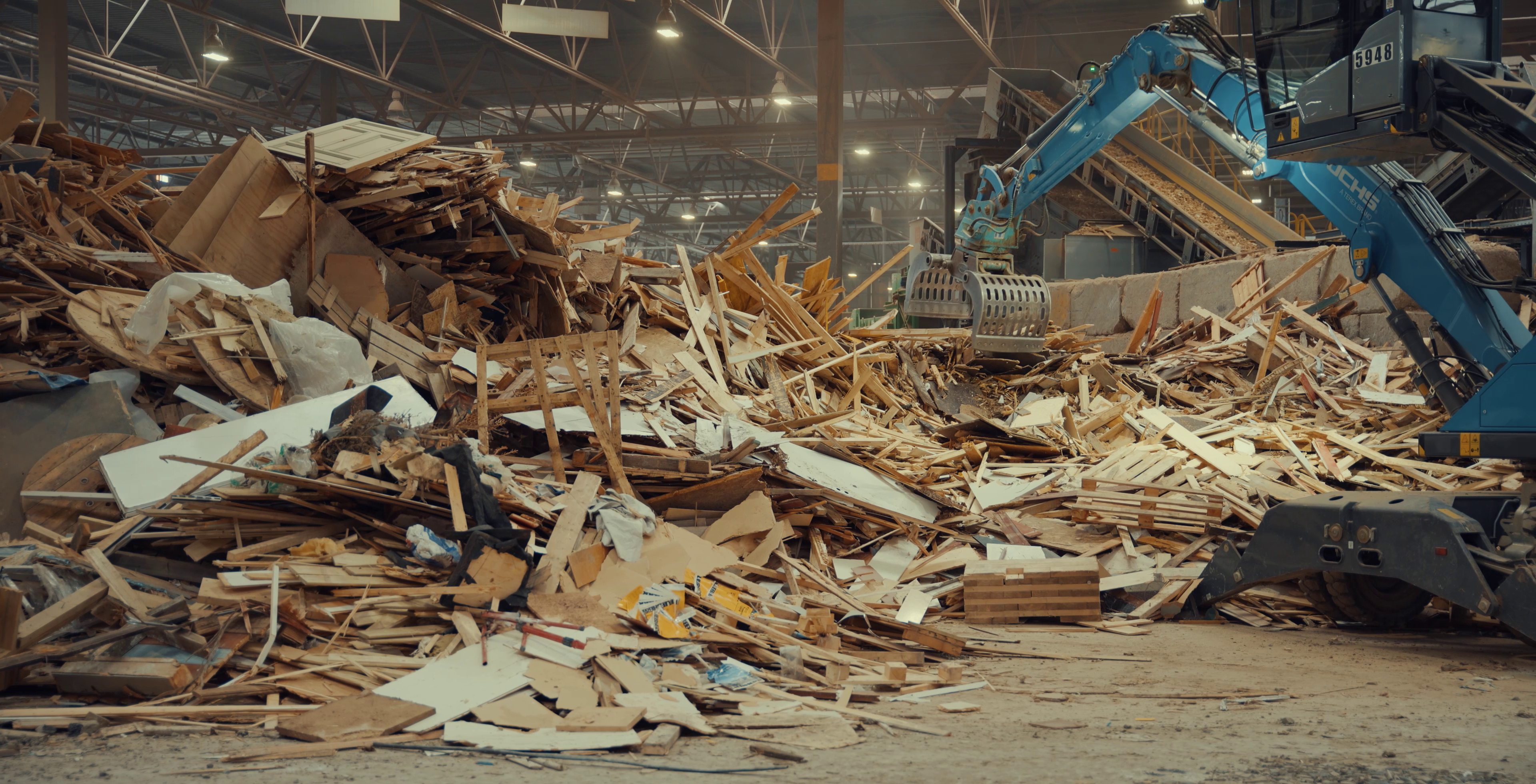
10. Single Stream
Single-stream recycling simplifies collection but demands sophisticated sorting machinery:
- Automated Sorting Systems: These systems use advanced sensors and robotics to sort mixed recyclables efficiently.
- Crushers: Reduce the size of materials like glass and aluminum for easier handling.
- Baling Machines: Compact sorted recyclables into bales for transport.
- AI-Powered Robotics: Improve accuracy and speed in sorting processes.
11. Waste Paper
Recycling paper reduces deforestation and conserves resources. The most effective machines include:
- Pulper Machines: Break down waste paper into a pulp that can be reused in manufacturing.
- Screening Equipment: Remove contaminants such as staples, adhesives, and plastic films.
- Presses: Compact waste paper into bales for efficient transport.
- Deinking Systems: Remove ink and other impurities, preparing paper for high-quality recycling.
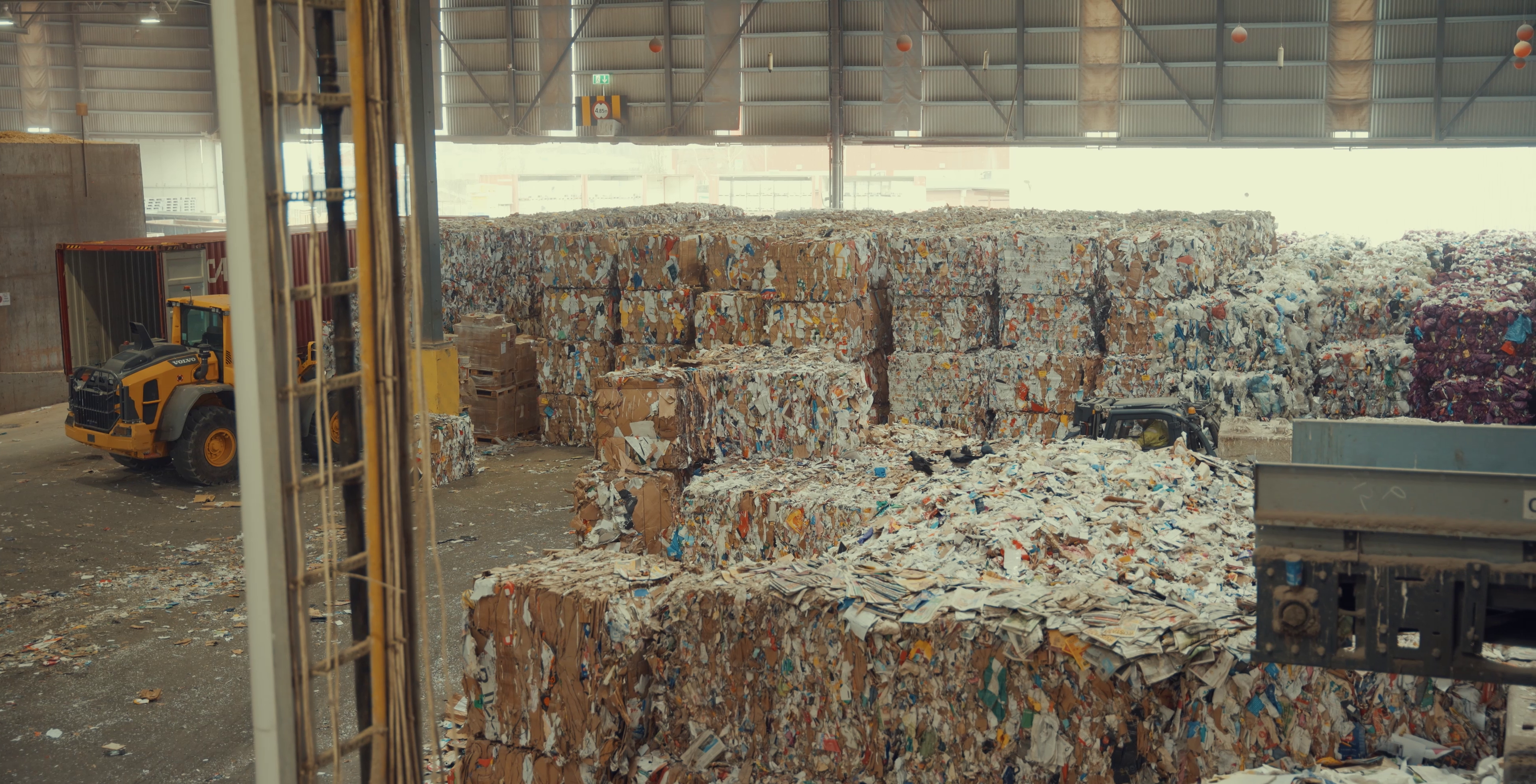
12. Electronic Waste (E-Waste)
E-waste includes discarded electronics like smartphones, laptops, and appliances. Specialized machines include:
- E-Waste Shredders: Break down electronics into smaller components for material recovery.
- Magnetic Separators: Extract valuable metals like steel and iron from shredded electronics.
- Circuit Board Recyclers: Separate precious metals such as gold, silver, and copper from circuit boards.
- CRT Dismantlers: Safely process cathode ray tubes, recovering glass and metals.
13. Hazardous Waste
Hazardous waste encompasses materials like batteries, chemicals, and medical waste. Key equipment includes:
- Incinerators: Safely dispose of hazardous materials by converting them into ash and gas.
- Autoclaves: Sterilize medical waste, ensuring it’s safe for disposal or recycling.
- Chemical Neutralization Systems: Treat liquid waste to neutralize harmful substances.
- Encapsulation Units: Seal hazardous waste to prevent leaks and contamination.
14. Textile Recycling
The fashion industry produces significant textile waste, much of which can be recycled into new materials. Essential machines include:
- Textile Shredders: Break down fabrics into smaller pieces for recycling.
- Fiber Extractors: Recover reusable fibers from shredded textiles.
- Sorting Machines: Categorize textiles by type and quality for specialized processing.
- Compactors: Compress textile waste into manageable bales for transportation.

Conclusion
In the quest for sustainable development, selecting the appropriate recycling machinery for specific waste streams is paramount. By utilizing advanced technologies, industries can optimize material recovery, reduce environmental impacts, and streamline operations. Azortum leads the way in integrating innovative recycling solutions tailored to diverse industrial needs.
Contact us today to learn how we can revolutionize your waste management processes.
Expert Design & Installation for Your Waste Sorting System!
At Azortum, we specialize in crafting tailored solutions designed to ensure sustainable operation and maximum profitability for your business. Contact us today to discuss the details of your next project — we're eager to collaborate!
We have received your information and will be in touch with you shortly. Thanks!
